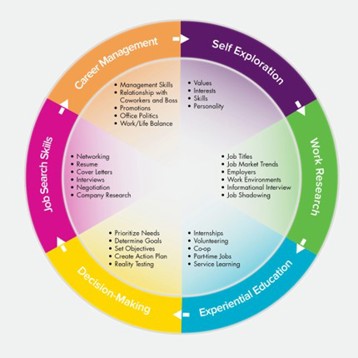
Navigating Career Pathways Within the Field of Paramedicine
Published by Respondr 3 min readNavigating the multifaceted world of paramedicine presents a unique set of challenges and opportunities for young paramedics eager to carve out fulfilling career pathways. The scope of paramedicine has expanded significantly, moving beyond traditional ambulance services to encompass a wide range of clinical, administrative, educational, and specialized care roles. This evolution opens up a plethora of avenues for paramedics to explore, each offering distinct experiences, challenges, and rewards. This article aims to guide young paramedics through the process of exploring these diverse career paths, employing strategic decision-making to choose the right path, and successfully transitioning between roles and specialties.

Exploration of Different Career Paths within Paramedicine
The first step in navigating career pathways is understanding the breadth of opportunities available within the field of paramedicine. Beyond the front-line roles typically associated with paramedics, there are several avenues for advancement and specialization:
- Clinical Roles: These positions involve direct patient care but extend beyond emergency response to include working in hospitals, clinics, and community health settings. Specializations may include critical care, community paramedicine, or working in specialized units such as air ambulance services.
- Administrative Positions: For those drawn to the operational side of healthcare, administrative roles offer opportunities to influence policy, procedure, and the strategic direction of paramedic services. These positions might involve project management, operational oversight, or roles within professional bodies.
- Educational Roles: Experienced paramedics can transition to educational positions, training the next generation of paramedics at universities, technical colleges, and within ambulance services. This path not only allows for the sharing of knowledge and experience but also for engagement in research and curriculum development.
- Specialized Care: Specializations within paramedicine allow practitioners to focus on areas of interest or unmet need within the community. Examples include mental health, geriatric care, and pediatric paramedicine, each requiring additional training but offering the chance to make a significant impact on specific patient populations.
Decision-Making Strategies to Choose the Right Path
Choosing the right career path requires thoughtful consideration and self-reflection. Young paramedics should consider their personal interests, values, and the aspects of their work that they find most rewarding. Decision-making strategies might include:
- Self-Assessment: Evaluating personal strengths, weaknesses, and interests to identify potential career paths that align with individual skills and passions.
- Mentorship: Seeking guidance from experienced professionals who can provide insights into different roles and advice based on their own career trajectories.
- Professional Development Opportunities: Participating in workshops, courses, and shadowing opportunities in areas of interest can provide a deeper understanding of potential career paths and help in making informed decisions.
- Networking: Engaging with professional associations and attending industry conferences can broaden one's understanding of the field and open doors to new opportunities.
Transitioning Between Different Roles and Specialties
Successfully transitioning between roles requires planning, flexibility, and ongoing professional development. Key considerations for a smooth transition include:
- Acquiring Relevant Qualifications: Many specialized roles require additional certifications or degrees. Identifying and pursuing the necessary educational prerequisites is a critical first step.
- Gaining Experience: Volunteering or seeking part-time positions in the desired specialty area can provide valuable experience and insights into the day-to-day realities of the new role.
- Professional Networking: Building relationships with professionals in the target specialty can provide support, advice, and potential job leads.
- Personal Resilience: Transitioning between roles can be challenging and may involve setbacks. Cultivating resilience and a positive outlook is essential for navigating these changes successfully.
For young paramedics, the journey through the diverse landscape of paramedicine is both exciting and daunting. By exploring the various career paths available, employing strategic decision-making, and preparing for transitions between roles, paramedics can navigate their careers with confidence. The field of paramedicine offers endless opportunities for those willing to pursue them, with each path providing unique challenges and the chance to make a meaningful difference in the lives of others. As the profession continues to evolve, so too do the possibilities for those dedicated to lifelong learning and service.